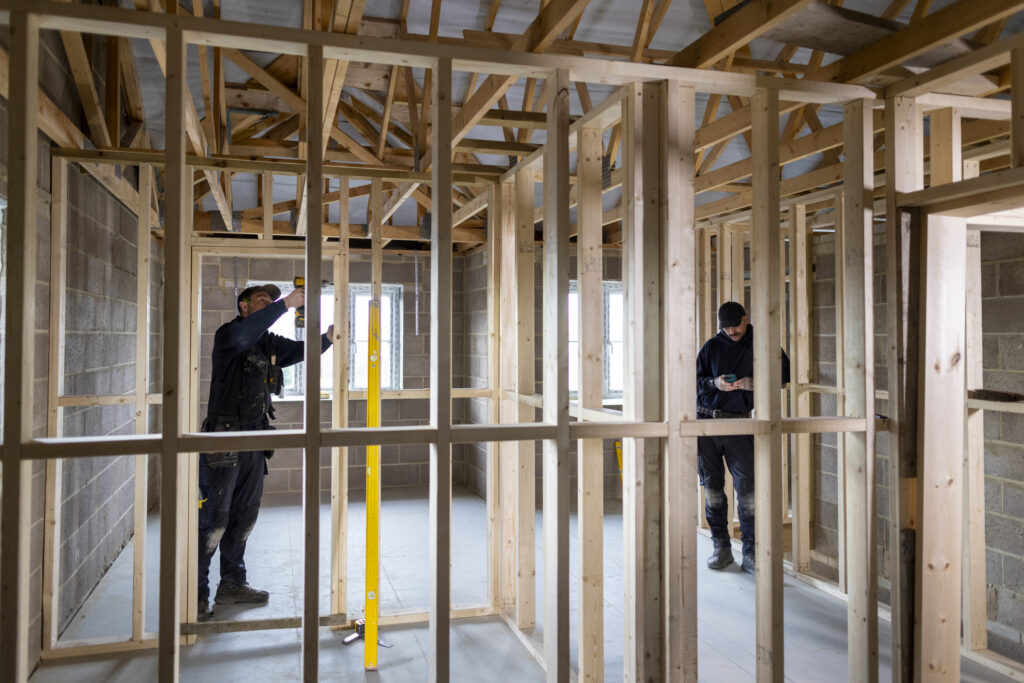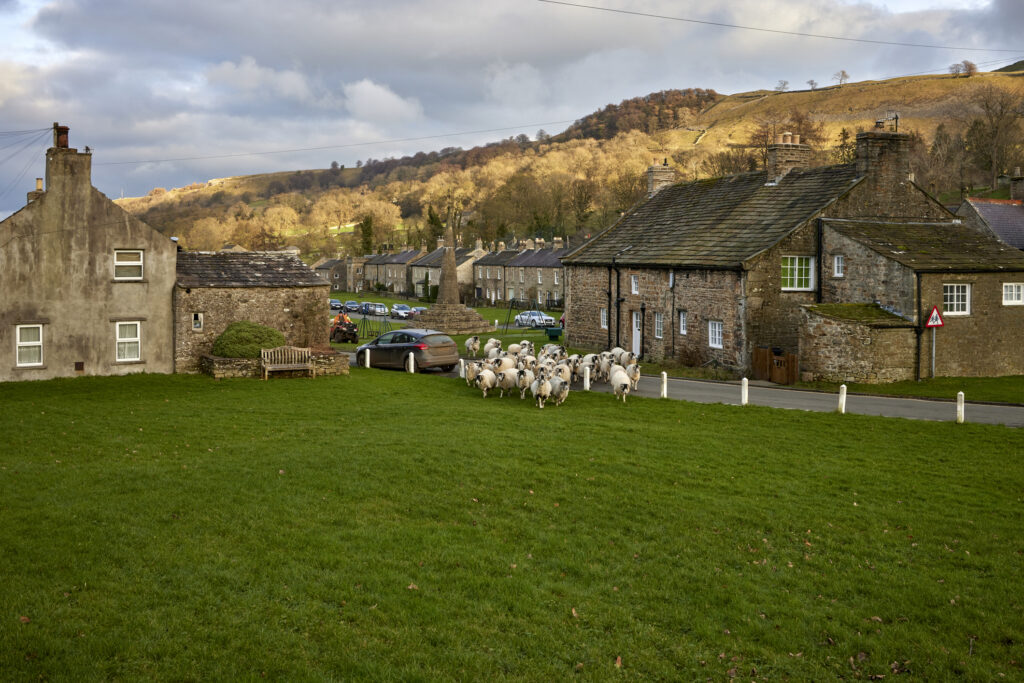
A CEO’s perspective: using loan finance to increase capacity and impact of almshouses
Coventry Church Municipal Charities (CCMC) has been in existence since 1506 and currently operates 73 units of affordable supported living accommodation, in a mix of heritage and modern buildings.
With the support of a £4 million loan from Charity Bank, and a Homes England grant, CCMC is constructing 45 new units of accommodation. This will enable the charity to offer modern, quality accommodation to more people in need within the Coventry area.
CEO Matthew White tells us what they hope to achieve with this project and why they chose Charity Bank for the loan.
When did you decide to undertake this development project?
It’s something we’d been thinking of doing for over a decade, but the timing was never quite right. We always have a waiting list and there is an increasing need for affordable accommodation that is conveniently located for accessing the town centre and its facilities, so we knew that any expansion would have a real positive impact on the local people.
We’d had our eye on this site for a while, as it’s just across the road from our other main accommodation buildings, but it passed through various hands over the years and only became available for us to buy in 2017.
Why did you choose Charity Bank for this loan?
Charity Bank gave our Board of Trustees an immediate confidence in their knowledge and abilities. They’d lent money to many almshouses in the past and clearly knew how we worked, our structure and our needs. We then also spoke to the trustees of some other almshouses who’d borrowed money from Charity Bank and they couldn’t speak highly enough of them, saying how helpful they’d been.
The fact that Charity Bank is an ethical lender was also important as this aligned with our overall aims and aspirations. Having the option to not go to a high street bank is really important, not just for the charity sector but for the financial sector as well I think.
Did you have any concerns about taking out the loan?
Yes – and still have! It’s obviously a lot of money and it’s also a long financial commitment. But Charity Bank has been really helpful and is allowing us to pay interest-only for the first two years. They understood that even once the building is finished it’s likely to take us 18 months to two years to get up to full capacity. There’s also the option to pay off the loan early without any penalty, so it really ticks all the boxes to help ease concerns.
How did you find the process of applying for the loan?
The initial process was fine; there is a lot of paperwork but then it’s a large sum of money so you have to accept that.
The real difficulties we had were not related to Charity Bank but rather complications with the site and our attempts to register as a Charitable Incorporated Organisation (CIO). This company status had been built in as one of the conditions of the loan but ultimately it turned out not to be feasible in the time available. This meant we had to redo the loan application in the end, which of course set us back and put some stress on the financial situation as we were having to delay the building works. Throughout all of this though Charity Bank was very understanding and helpful.
There were also various delays caused by the legal aspects. The Charity Bank solicitors wanted to check over the contracts we had with the city council and the building contractors, and requested some amendments. But they were always very open and transparent about what they needed. And our regional manager Adam Ruffinato always put my mind at ease, reassuring me that we would get it all figured out. He was always ready to find a solution to any problem and no matter what issues we faced I never felt as though he was going to turn around and say “no, sorry, you can’t have the loan anymore.”
Did Charity Bank offer any additional help or support?
Yes, they put us in touch with quite a lot of other charitable organisations they know and work with, as we still have a shortfall and are looking to fundraise ourselves.
Adam also comes out to see us on a regular basis to see the works and offer any additional support or guidance needed. It’s reassuring to have that ongoing involvement and care.
What do you wish you’d known at the start of your loan journey that you do now?
It would have been good to know all the additional complications and restrictions that could come with building on a leasehold site and the development clauses attached. I would have started having conversations with Charity Bank and the legal teams much earlier to try to get ahead of this and save some stressful moments!
What advice would you give to other charities who are thinking of taking out a loan?
To get started early and to make sure that everything is fully in place before you start building. I had this idea that it would take between three and six months from starting the application process to drawing down, but it took 12 months in the end. So the more buffer time you can give yourself for any possible delays and complications the better.
What’s next for CCMC?
Once this is completed, we’d like to look at updating our existing accommodation to make sure they’re all of an equal standard. There’s also another potential site that Coventry City Council are looking to dispose of in the next couple of years that we’d be keen to take on. Coventry is also going to be the UK City of Culture 2021, so we’re hoping to get involved in that. We don’t like to sit still; as one of our trustees says, “to rest is to rust”.
In the wider context, what changes would you like to see to support your area of work?
The threshold for the amount of savings someone can have before they can access housing benefits is too low. It’s really sad that some people have to give things away or end up virtually penniless before they are given assistance. I’d really like to see that threshold increase to enable more people to benefit from financial assistance and increased quality of life and wellbeing.
Also, more support for the continuation of the almshouse movement, which is a vital service that puts residents first as opposed to profit.
About Charity Bank
Charity Bank is the loans and savings bank owned by and committed to supporting the social sector. Since 2002, we have used our savers’ money to make more than 1380 loans totalling over £580m to housing, education, social care, community and other social purpose organisations.
Nothing in this article constitutes an invitation to engage in investment activity nor is it advice or a recommendation and professional advice should be taken before any course of action is pursued.


